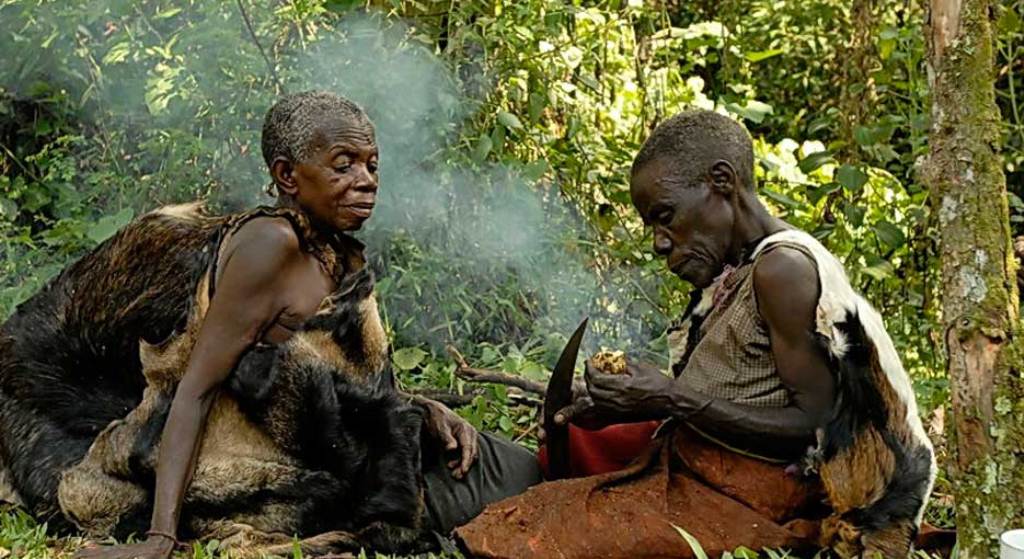The Batwa people, often referred to as “the forest people” or the Twa, represent one of Uganda‘s oldest indigenous communities. For thousands of years, they lived a symbiotic existence as hunter-gatherers within the dense rainforests of southwestern Uganda. However, their history in recent decades has become a poignant tale of displacement, marginalisation, and resilience.
Ancient History and Traditional Way of Life
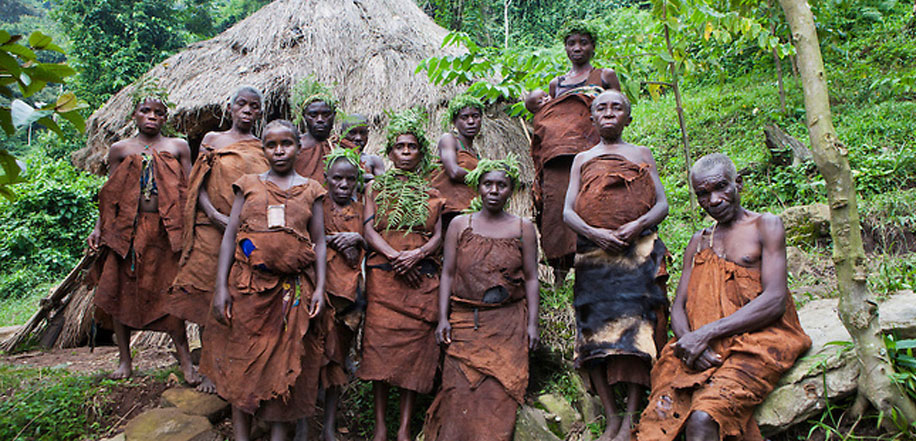
The Batwa are believed to be among the original inhabitants of the equatorial forests of Central Africa’s Great Lakes region, with some anthropological estimates dating their presence back over 60,000 years.
- Location: In Uganda, the Batwa traditionally inhabited the forests that are now the Bwindi Impenetrable and Mgahinga Gorilla National Parks, as well as the Echuya Forest Reserve.
- “Keepers of the Forest”: Their traditional lifestyle was intrinsically linked to the forest. They lived as hunter-gatherers, relying entirely on the ecosystem for food, shelter, and medicine. Their deep knowledge of the forest’s flora and fauna made them expert trackers, herbalists, and custodians of the environment.
- Culture: The Batwa lived in small, close-knit communities, often in temporary huts made of leaves and branches. Their culture is rich in oral tradition, including storytelling, music, and dance, which served to pass down their history, spiritual beliefs, and survival skills.
Displacement and the Birth of “Conservation Refugees”
The Batwa’s traditional way of life was fundamentally and tragically altered in the early 1990s.
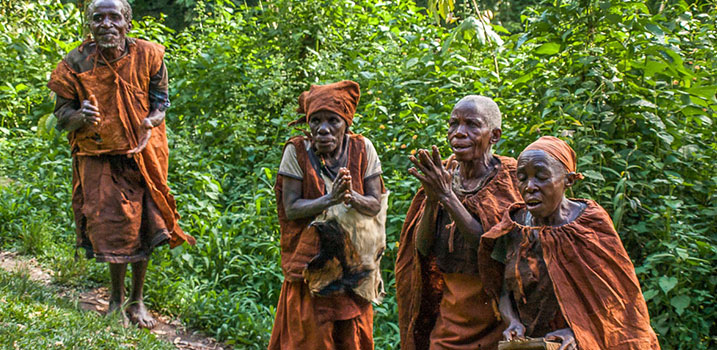
- Eviction for Conservation: In 1991, the Ugandan government formally gazetted the Bwindi and Mgahinga forests as national parks, primarily to protect the critically endangered Mountain Gorillas.
- Loss of Home: The Batwa were forcibly evicted from their ancestral lands. Since they had no legal land titles, they received inadequate, or often no, compensation or resettlement support. This displacement stripped them of their only source of livelihood, identity, and spiritual connection.
- New Reality: They were suddenly thrust into an unfamiliar, unforested world without the skills, land, or resources to adapt. This led to them being labelled as “conservation refugees,” a term that highlights the conflict between conservation efforts and indigenous rights.
Current Status and Challenges
Today, the Batwa population in Uganda—estimated to be around 6,700 people—faces significant social and economic hardships, living mostly on the fringes of society or as squatters on land belonging to others.
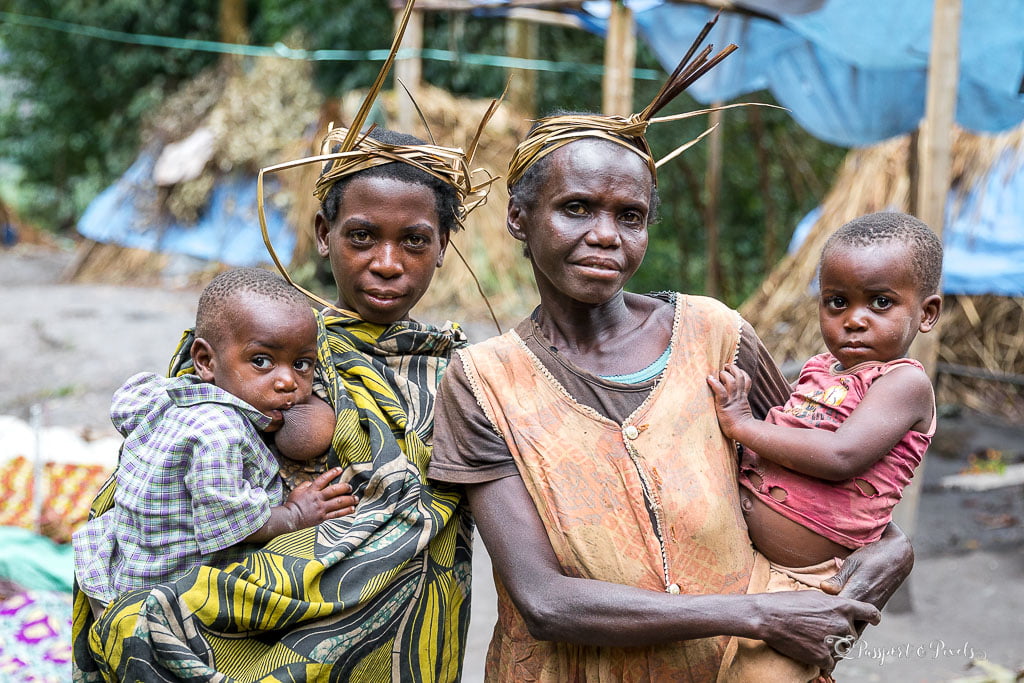
Major Challenges:
- Extreme Poverty: Many Batwa live in extreme poverty, relying on low-paid casual agricultural labour, or, in some cases, begging, leading to high rates of food insecurity and malnutrition.
- Land Insecurity: The lack of land ownership remains a critical issue, affecting their ability to establish stable homes or cultivate crops.
- Health Crisis: The Batwa face major healthcare challenges, including limited access to medical facilities and high rates of diseases like pneumonia, respiratory infections, and HIV/AIDS. Their average life expectancy is drastically low compared to the national average.
- Discrimination: They often experience systematic discrimination in education, healthcare, and employment, which perpetuates their marginalisation.
Efforts Towards Cultural Preservation and Survival
Despite the overwhelming challenges, various local and international organisations are working to support the Batwa and help them preserve their culture while adapting to the modern world.
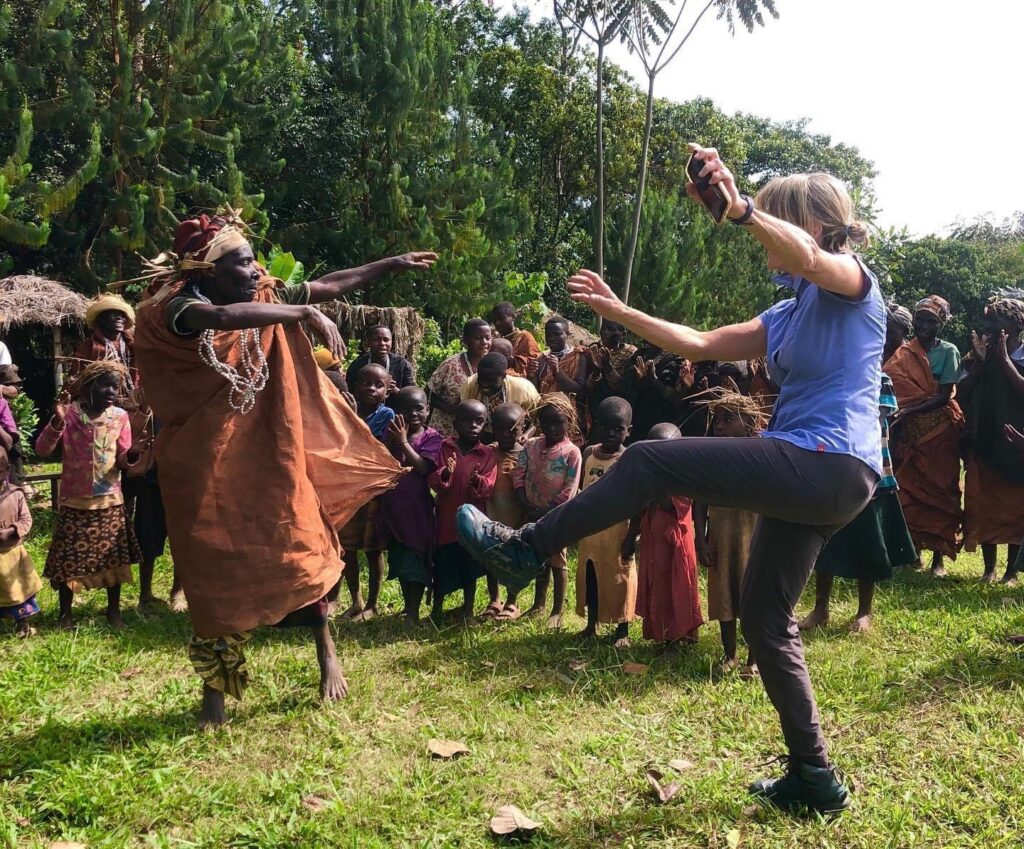
- Cultural Tourism: The most visible form of support is through cultural tourism, such as the Batwa Cultural Trail in Mgahinga and the Batwa Experience near Bwindi. These initiatives allow Batwa guides to share their traditional forest skills, history, songs, and dances with visitors, providing a source of income and a means to keep their heritage alive.
- Education and Healthcare: Efforts are underway to provide Batwa children with access to education and to establish clinics and community-based health programs to address their dire health statistics.
- Land Acquisition: Some NGOs and religious groups have purchased small plots of land to resettle Batwa families, although this remains insufficient to meet the community’s overall needs.
The story of the Batwa in Uganda is a crucial case study on the complex balance required between global conservation goals and the fundamental rights of indigenous peoples. Their ongoing struggle is a powerful call for global recognition and justice for communities displaced in the name of environmental protection.
You can book a gorilla trekking tour and add in the Batwa community visit- simply contact us now by sending an email to [email protected] or call +256-700135510 to speak with reservations team.

